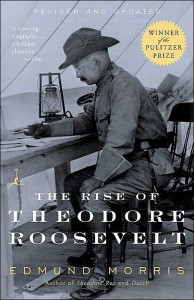Eating Animals
For some, Spring Break 2010 will be remembered as a week of beach volleyball, piña coladas, and wet t-shirt contests. For others, its significance (or lack of such) will fade from memory and exist simply as another vacation at home. For me, this particular recess will always mark my trek into veganism.
It began with a link passed on from a friend; more specifically, an excerpt from Jonathan Safran Foer’s book Eating Animals, an article which appeared in the New York Times Magazine’s Food Issue. At that point, something struck me about eating meat. Though he wrote what I’ve read dozens of times before—that the food industry is corrupt, that his vegetarianism sparked from an acute realization of what sat on his plate—Safran Foer surprised me with a philosophical angle. He managed to tie together his grandmother’s Holocaust stories with the psychology behind meat and engage me in a story that speaks not only of animal suffering, but of the implications to humanity.
I was hooked.
I immediately took to a train to Brookline Booksmith and bought the hardcover for myself. Less than five days later, I swore off meat for good.
Unlike Fast Food Nation or the countless documentaries about the modern food industry that have flooded the mainstream within the last decade, Safran Foer’s piece doesn’t simply show readers where their food comes from in the hopes that they throw their fists into the air and burn the slaughterhouses to the ground. Instead, the author takes the reader on a personal tour of family establishments, factory farms, slaughterhouses, and, probably most notably, his own home. He includes himself in the story more than anyone, highlighting the importance of food to culture and soul.
What this book did more than any other of its kind was urge me to think beyond the type. Statements like the following urged me to not just read and research, but to think about the implications of my decisions, and to really examine why my morality ends at the dinner table:
“…Taste, the crudest of our senses, has been exempted from the ethical rules that govern our other senses. Why? Why doesn’t a horny person have as strong a claim to raping an animal as a hungry one does to confining, killing and eating it? It’s easy to dismiss that question but hard to respond to it. Try to imagine any end other than taste for which it would be justifiable to do what we do to farmed animals…. Just how destructive does a culinary preference have to be before we decide to eat something else? If contributing to the suffering of billions of animals that live miserable lives and (quite often) die in horrific ways isn’t motivating, what would be? If being the number one contributor to the most serious threat facing the planet (global warming) isn’t enough, what is? And if you are tempted to put off these questions of conscience, to say not now, then when?”Safran Foer’s book presented the facts and asked the questions that, whether or not we’ll readily admit it, haunt us. Frankly, the small-town values of the family farm have been virtually demolished to make way for a more profitable, inexcusably inhumane market. For the first time, this reality was coupled with the question, “If I don’t feel comfortable serving my baby boy chicken anymore, if I can’t explain to my child why it’s okay to eat fish, why should any of us be consuming such a dangerous product?” As a thinker, I couldn’t avoid doing. After I’d made my decision, I became aware of the good fortune of Northeastern students. The school’s commitment to healthy eating provided me with access to a variety of vegan options and the feeling that a moral diet didn’t necessarily have to be a difficult one. Stetson’s Levine Marketplace offers an entire vegan-friendly kitchen with a staff member even friendlier. International Village extends a hand to vegetarians with a falafel and veggie burger station. All of the dining halls are equipped with a full salad bar and local-grown vegetables. In addition, the library itself has at least two resources for further reading, Everything You Need to Know About Being a Vegan by Stefanie Iris Weiss and The Vegan Sourcebook by Joanna Stepaniak, both available as eBooks. Countless other resources are available in the library and online about vegetarianism. Before you leap straight to the book or become a vegetarian yourself, I suggest that you take a couple minutes to check out the same article that got me interested. Only with passion can we seek change.


